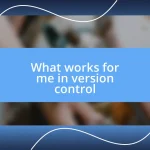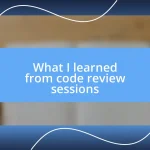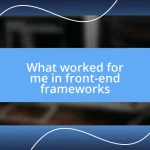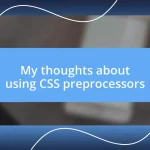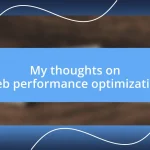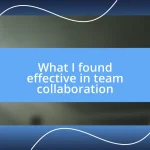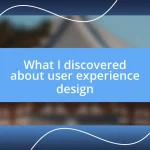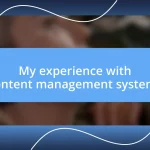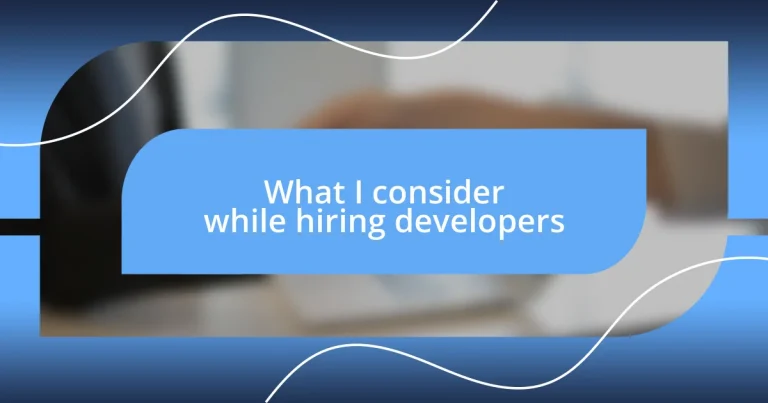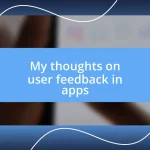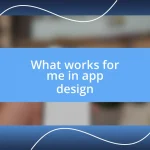Key takeaways:
- Creating a developer skills matrix balances technical and soft skills, showing that problem-solving and teamwork can be as crucial as technical competencies.
- Effective evaluations include coding assessments, portfolio reviews, and open-ended discussions to assess a candidate’s problem-solving capabilities and cultural fit.
- Making final hiring decisions relies on alignment with company values, team feedback, and gut instinct, emphasizing the importance of personal connections within the team.
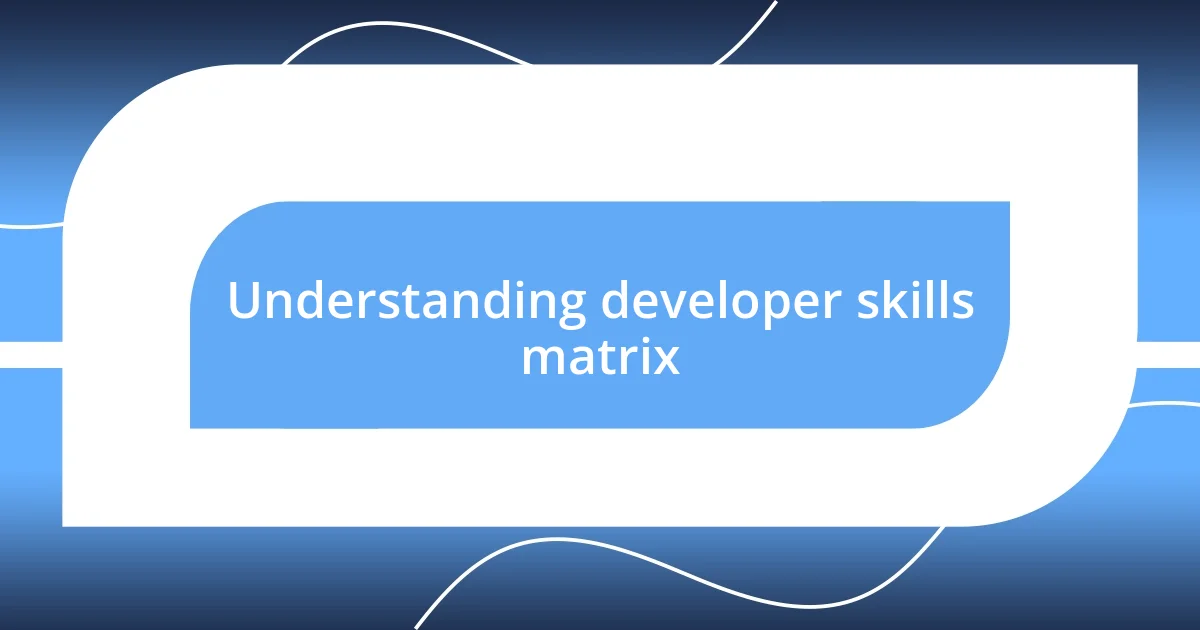
Understanding developer skills matrix
When I first encountered the concept of a developer skills matrix, I found it to be an eye-opener. It provides a structured framework that helps you visualize the abilities and proficiencies of your development team. I often ask myself: how can I ensure that every project has the right mix of skills? That’s where the matrix comes into play.
Creating a skills matrix is not just about listing technical competencies; it’s also about understanding soft skills and how they complement technical abilities. For instance, I once hired a developer who didn’t meet every technical requirement but had exceptional problem-solving skills and teamwork. That experience taught me that a balanced skill set can make all the difference in project success.
As I’ve refined my hiring criteria over the years, I realized the power of assessing both depth and breadth of knowledge in my candidates. Are they specialized in one area, or do they have a versatile skill set that allows for adaptability? This nuanced understanding of a developer’s capabilities can truly transform a team, leading to richer collaboration and innovation.
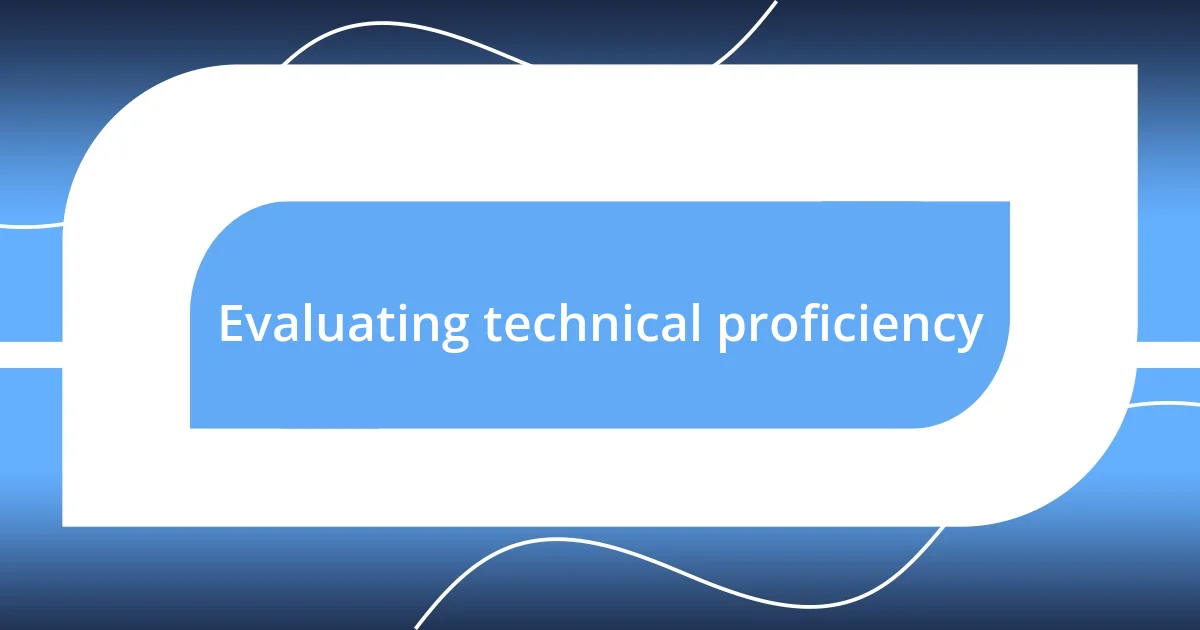
Evaluating technical proficiency
Evaluating technical proficiency goes beyond just checking boxes on a resume. I often dive into coding tests or practical assessments that reflect real-life scenarios. I remember a time when I presented a candidate with a scenario that mirrored a challenge we faced in a past project. Watching how they approached it provided clearer insight into their problem-solving strategies and coding practices than any interview questions could reveal.
Here are some key elements I focus on during the evaluation:
- Coding Assessments: Timed challenges where candidates solve problems using their preferred languages to gauge their thought processes.
- Portfolio Review: Analyzing their past work showcases not only their technical skills but also their creativity and style.
- System Design Questions: Asking how they’d architect solutions helps me understand their grasp of scalability and efficiency.
- Peer Reviews: I sometimes ask candidates to critique a piece of code. This assesses their understanding and ability to articulate their thoughts clearly.
- Cultural Fit: Technical skills are essential, but I also consider how their approach to problem-solving aligns with team dynamics.
Those moments when a candidate surprises me with an innovative solution are truly exhilarating. They remind me that technical proficiency isn’t just about skillsets; it’s also about mindset and how individuals tackle complex challenges in collaborative settings.
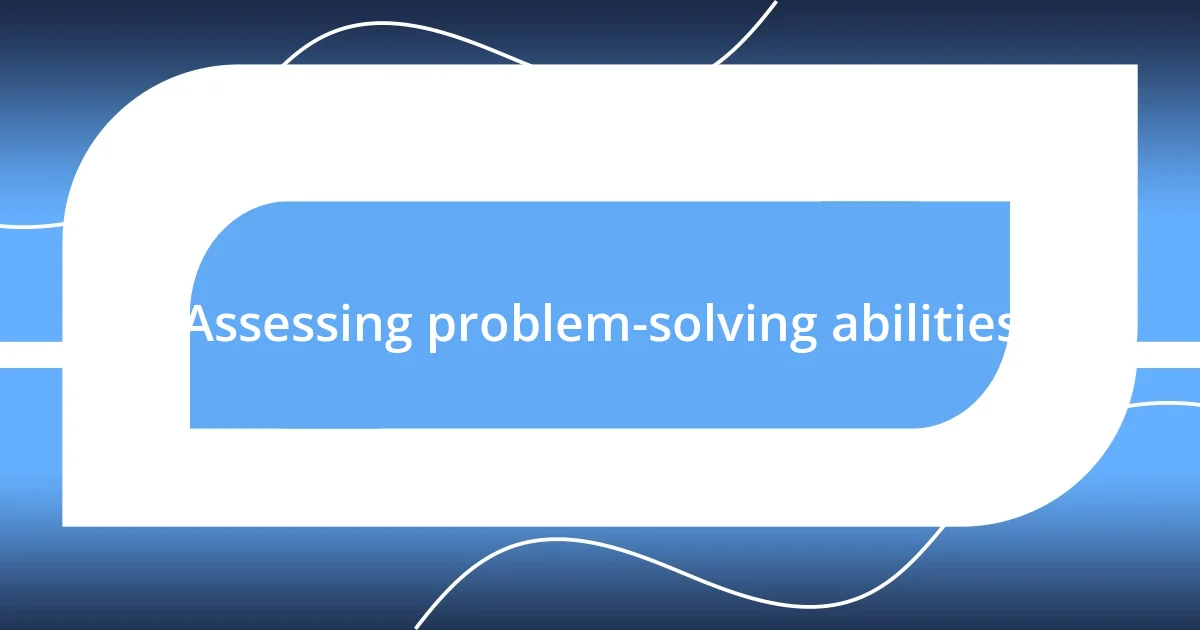
Assessing problem-solving abilities
Assessing problem-solving abilities in developers goes beyond mere technical tests. I’ve found that engaging candidates in open-ended discussions about previous challenges can be incredibly revealing. For example, I once interviewed a candidate who described a complex project where they had to pivot mid-way due to unforeseen issues. Listening to their thought process and the steps they took to find a solution provided me with deep insights into their adaptability and resilience, qualities I value highly.
When I conduct coding assessments, I like to include problems that require creative thinking rather than rote memorization of algorithms. One time, I presented a candidate with a bug that had multiple potential solutions. Their approach showed me not just their coding skills, but also how they prioritized efficiency and user experience, which are critical in real-world development. This kind of assessment helps me see beyond a resume and really gauge how a candidate approaches problem-solving in a dynamic environment.
I also believe that teamwork is a vital aspect of problem-solving. During interviews, I often ask candidates about experiences where their collaboration led to innovative solutions. A memorable instance was when a candidate shared how they facilitated a brainstorming session that turned an initial roadblock into a breakthrough for the team. This demonstrated not only their problem-solving ability but also their leadership potential, making them a standout choice for my team.
| Key Points | Examples |
|---|---|
| Open-ended Discussions | Assessing past challenges faced and solutions found |
| Coding Assessments | Solving creative problems requiring unique solutions |
| Teamwork | Collaboration leading to innovative problem-solving |
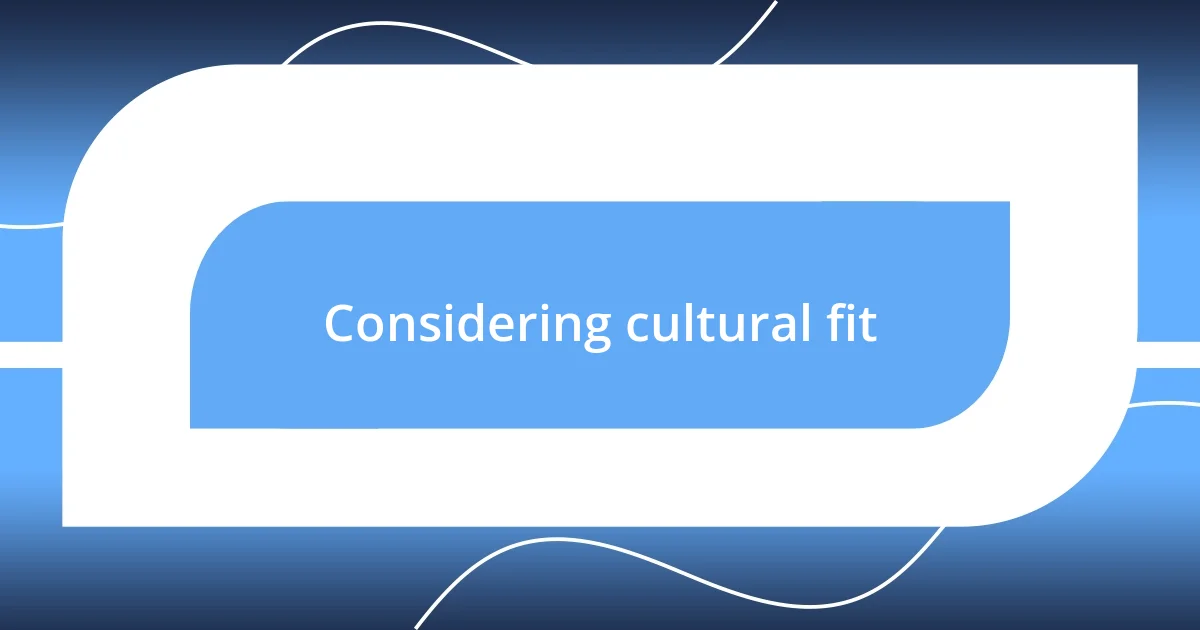
Considering cultural fit
When I think about cultural fit, it often strikes me as an essential factor in the long-term success of any team. It’s not just about whether a candidate can code well; it’s about how they would mesh with existing team dynamics. For instance, I once hired a developer whose enthusiasm for collaboration instantly uplifted the whole group. Their ability to communicate openly and seek feedback transformed our team meetings into brainstorming sessions filled with energy and creativity.
I also believe that passion for the company’s mission can significantly impact a developer’s contributions. During an interview with a candidate who was genuinely excited about our product, I noticed their eyes lit up when discussing potential improvements. That passion isn’t something you can teach—it comes from within and can drive innovation. Finding someone who actively embodies the company culture can lead to a more motivated and engaged team member, which ultimately enriches our projects.
One area I pay close attention to is how candidates handle feedback. Cultural fit often becomes evident during discussions about previous experiences. I recall a candidate who shared a story about a failed project but focused on what they learned from it. Their willingness to embrace failure and grow from it spoke volumes about their mindset. I find that when someone can reflect honestly on their experiences and adapt, it indicates they’ll thrive in a culture that values continuous improvement and learning.
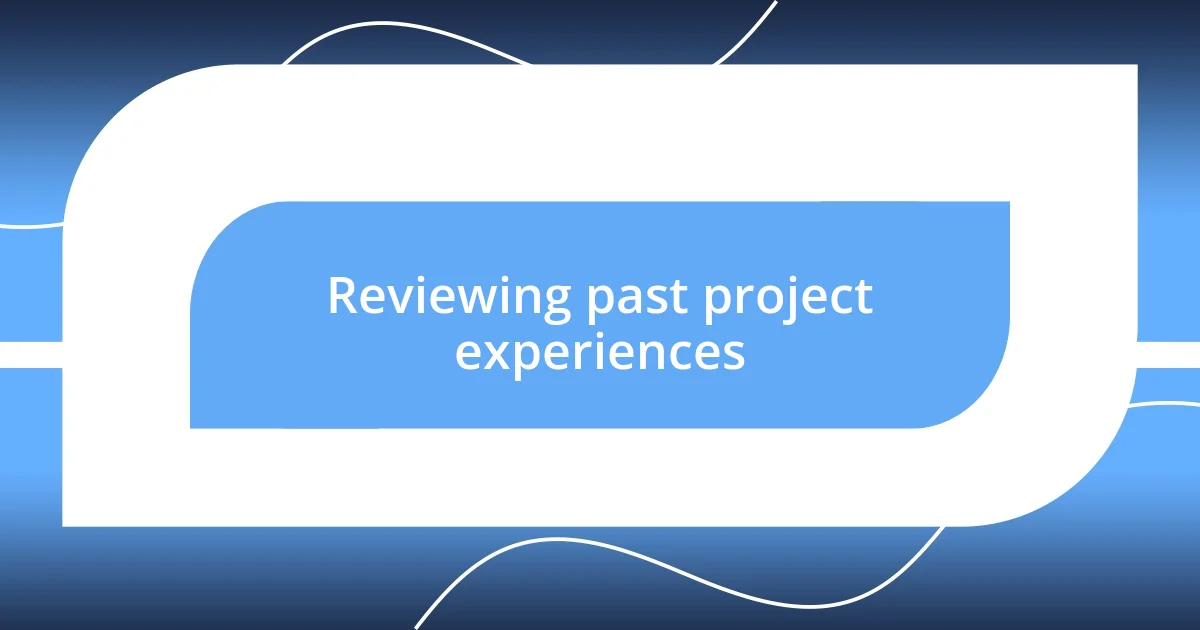
Reviewing past project experiences
When I review a candidate’s past project experiences, I focus on the specifics of what they accomplished. I often ask them to describe a particularly challenging project. I remember one developer shared a story about leading a significant migration to a new platform. Not only did they outline the technical hurdles, but they also discussed how they managed team morale during the process. This blend of technical prowess and emotional intelligence really stood out to me.
Additionally, I pay attention to the diversity of their project experiences. A developer I once interviewed detailed how they worked on mobile, web, and even some IoT projects. It was fascinating to hear how each experience shaped their understanding of user experience and cross-platform challenges. I found myself thinking, how well-rounded is this candidate? Their adaptability can often serve as a strong indicator of how well they’d fit into our multifaceted projects.
Lastly, I like to dive into their role within teams. A candidate once recounted an incident where they took initiative during a critical deadline. They described how they rallied their teammates to meet a tight schedule, reflecting their leadership skills. It made me realize that beyond technical skills, I’m really looking for someone who can inspire others and foster collaboration in high-pressure situations. That’s the kind of developer who not only delivers results but also uplifts the entire team.
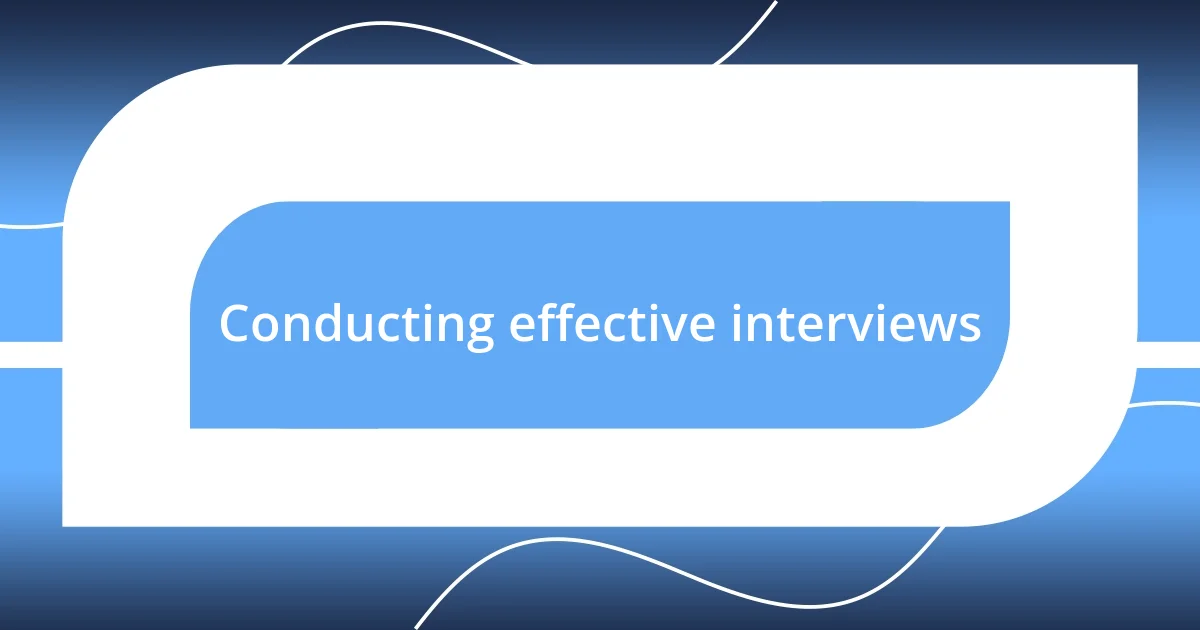
Conducting effective interviews
One of my key strategies in conducting effective interviews is to create an environment that feels more like a casual conversation instead of a formal interrogation. I remember a time when I sat down with a developer over coffee rather than in a conference room. This relaxed setting allowed us to share stories, and I discovered their approach to problem-solving in a much deeper way than I would have during a traditional Q&A session. How often do we lose valuable insights simply because candidates feel pressured?
I also find that open-ended questions yield the best results. Rather than just asking about technical skills, I love to prompt candidates with scenarios, like “What would you do if a critical deadline was looming and a key part of your project wasn’t working?” Their responses reveal not just their technical capabilities but also their thought process and critical thinking skills. One candidate surprised me by suggesting a creative workaround that showed both innovation and experience. It’s astonishing how the right question can unlock so much potential.
Finally, I believe it’s essential to involve other team members in the interview process. I remember a developer who initially seemed quiet during our individual interview but opened up significantly when my teammate joined the conversation. Their chemistry sparked an engaging discussion that highlighted the candidate’s collaborative spirit. Bringing in perspectives from potential colleagues can not only ease the candidate’s nerves but also provide insights into how they might interact with the team. Have you ever noticed how a team’s dynamic can shift simply by adding another voice into the mix?
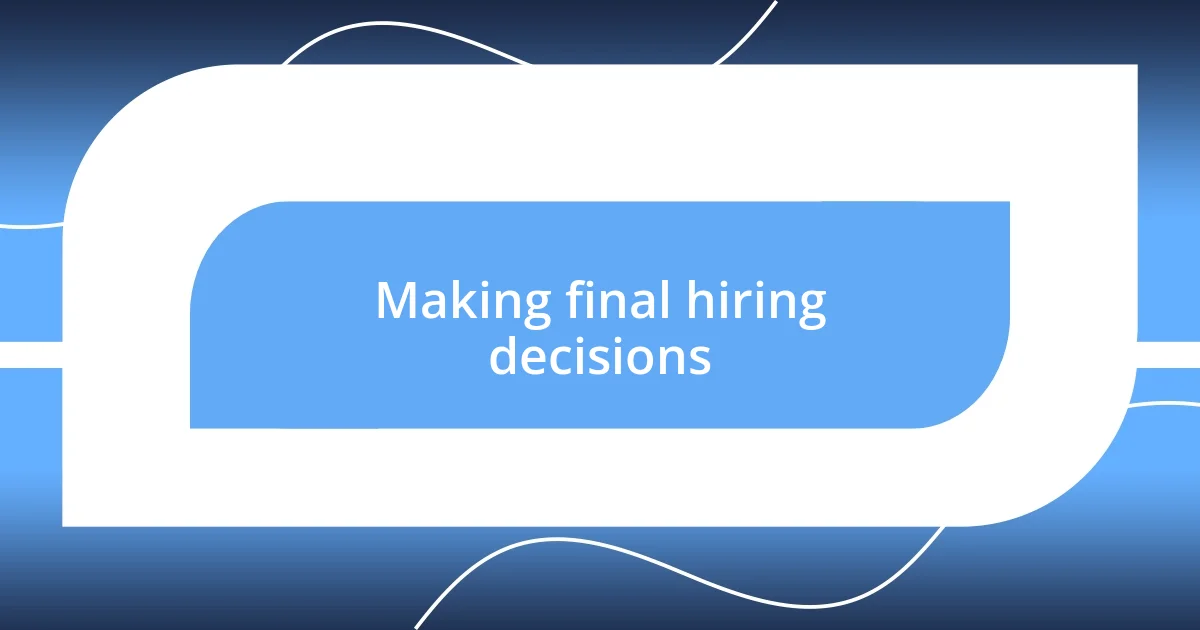
Making final hiring decisions
When it comes to making final hiring decisions, I often reflect on how closely a candidate aligns with the company’s values. One time, I had two equally qualified developers in the running. As I considered their technical expertise, it was the one who shared a personal story about their passion for mentorship that resonated with me. It reminded me that our team thrives on collaboration and support, which made my choice much clearer.
Another aspect I weigh heavily is the feedback from the team during the interview process. I still recall a situation when my lead developer expressed an instant connection with one candidate over their shared experiences in open-source projects. This chemistry wasn’t just about technical skills; it signaled potential for a positive working relationship. Have you ever noticed how the best teams are built on mutual respect and understanding? It’s those personal connections that can make or break the harmony of a team.
Ultimately, I trust my gut feeling while blending it with logical assessment. I remember once hiring a candidate who initially seemed unsure during the interview, yet something about their passion for learning struck a chord with me. I took a chance, and they turned out to be one of our most innovative team members. Sometimes, intuition guides me in ways that metrics alone cannot capture. It’s essential to reflect on how these decisions can ultimately shape the team’s future.
